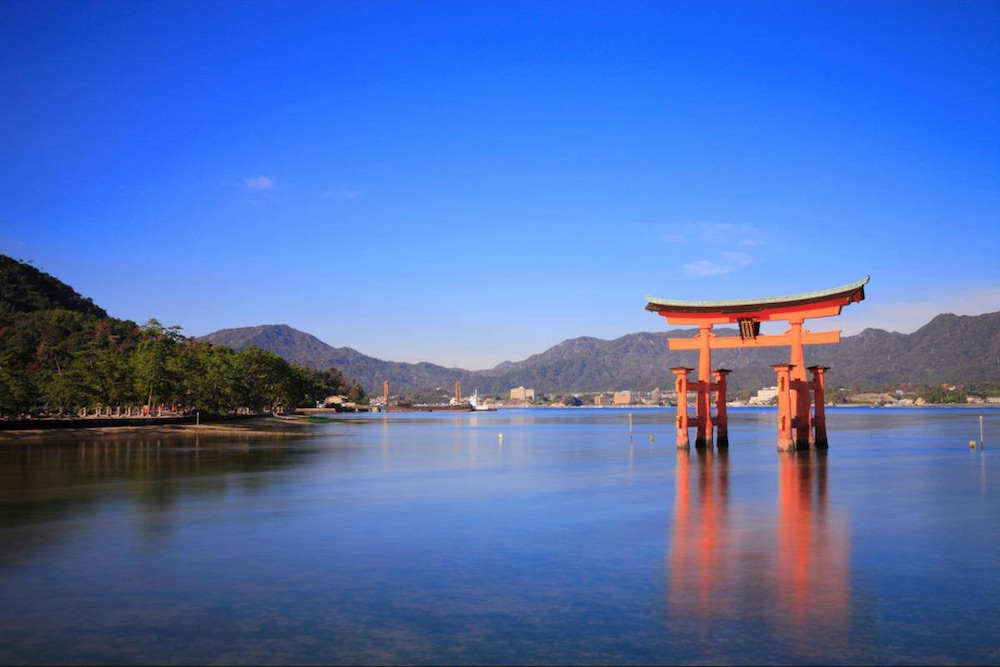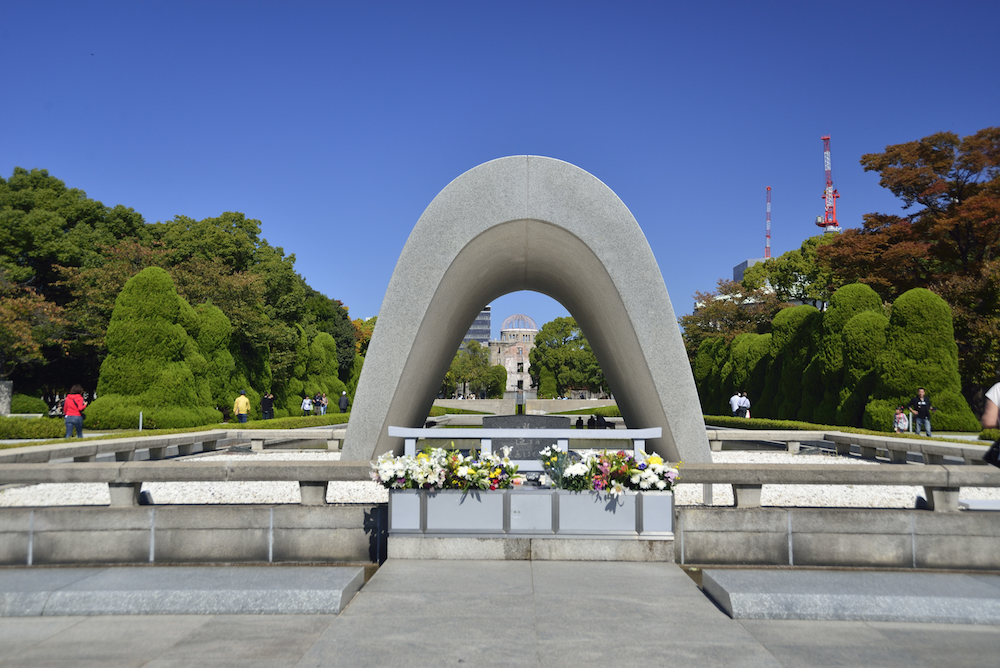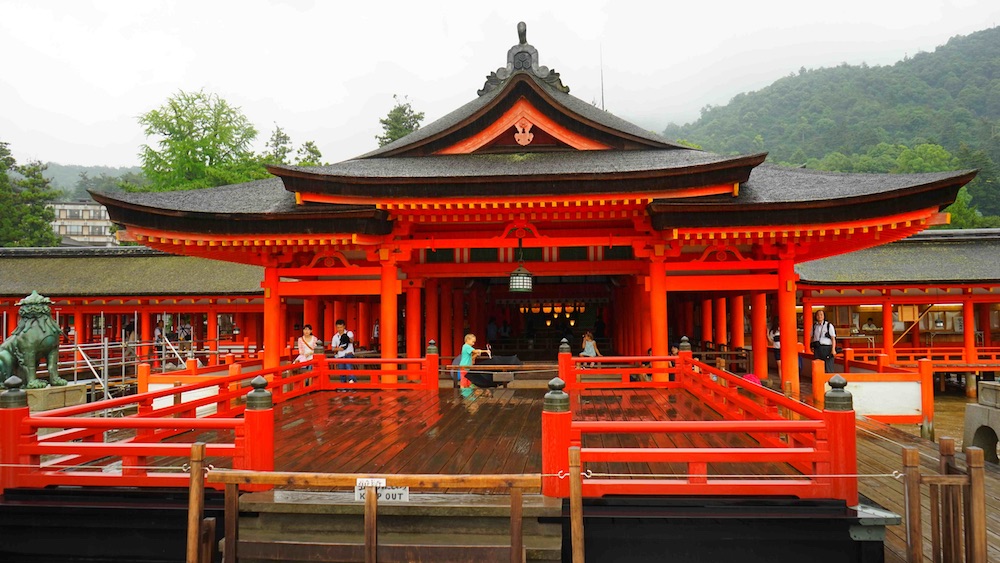Hiroshima Prefecture (広島県) in Chugoku Region is formed of 14 cities, with Hiroshima City 広島市 as its capital.
It’s common knowledge that the prefecture’s recent history is harrowing, heartbreaking and everything in between. What makes the prefecture so symbolic – not just Japan, but for the whole world – is what it stands for today: peace and hope.
Hiroshima City (広島市)
A-Bomb Dome
Miyajima (宮島)
Hiroshima is a place that anyone who gets the opportunity to visit, should. Because what you will find is, despite its tragic past, the prefecture is inspirational beyond words. The most frequented destinations within the prefecture are Hiroshima City and Miyajama (宮島) less than one hour away. Miyama – the “shrine island” – has become a huge tourist attraction because of its beautiful “floating” tori gates immersed in the waters of the Onoseto Strait.

Hiroshima City (広島市)
During the Imperial period (1871-1939) the construction of Ujina Port helped Hiroshima to establish itself as an important port city, and the Army Marine Headquarters were even situated there during World War II. Today the city’s most famous locations are in the city center, around the Hiroshima Peace Memorial Park (広島平和記念公園).
The Hiroshima Peace Memorial Park is dedicated to the victims of the Hiroshima bombing and the countless people who were affected by it. It is based in the open plain that was formed during the explosion and has an array of remembrance places, each of them strongly connected to the desire for peace and nuclear disarmament.
Hiroshima was the first place in the history of the world, to have been targeted by with nuclear weapons. And it, unfortunately, wasn’t the last. The atomic bombing of Hiroshima on 6th August 1945 killed tens of thousands of people instantaneously, and only three days later the atomic bombing of Nagasaki took 35,000 more lives.

A-Bomb Dome
The most visually impactful part of Hiroshima Peace Memorial Park would be the area around the A-Bomb Dome (原爆ドーム) – a site which is haunting. It was the closest building to the center of the explosion and its skeletal ruins have remained mostly untouched since.
Designated as a UNESCO World Heritage Site in 1996, it serves as an unforgettable reminder of why we need peace. It is really worth making a day trip to the memorial park and to spend some time and uncover the meaningfulness behind this historical site. The best place to learn about the events of the Second Sino-Japanese War and WWII, and their after-effects it is at the Hiroshima Peace Memorial Museum (島平和記念資料館).
If you can plan your visit to Hiroshima in advance, there is a peace memorial ceremony held at 08:00 on 6th August every year. The ceremony is held to console victims and reinforce the importance the prefecture’s message. In the evening, thousands of people send paper lanterns inscribed with their wishes along the Motoyasu River (元安川).
Miyajima (宮島)
Miyajima is incredibly popular for foreign and domestic tourists alike. Scattered around Miyajima are stunning temples and shrines, accompanied by scenic walking trails and romantic ryokan.
The island’s key attraction is Itsukushima Shrine (厳島神社), and as you may have guessed, the giant floating torii gate that Miyajima is renowned for, belongs to this shrine. You can get a closer look of the torii by taking a boat cruise at high tide or walking across the shore at low tide.

Either way, this view of Itsukushima Shrine towards the island’s Mount Misen (弥山) is listed as one of Japan’s “Three Best Views”. After that, you can scale 535 m Mount Misen to breathe in the view, and reflect upon wonderful Hiroshima.
If you are interested in studying Japanese in Tokyo, find out more about our school by filling out the form below.
[contact-form-7 id=”12634″ title=”Inquiry Form_copy”]